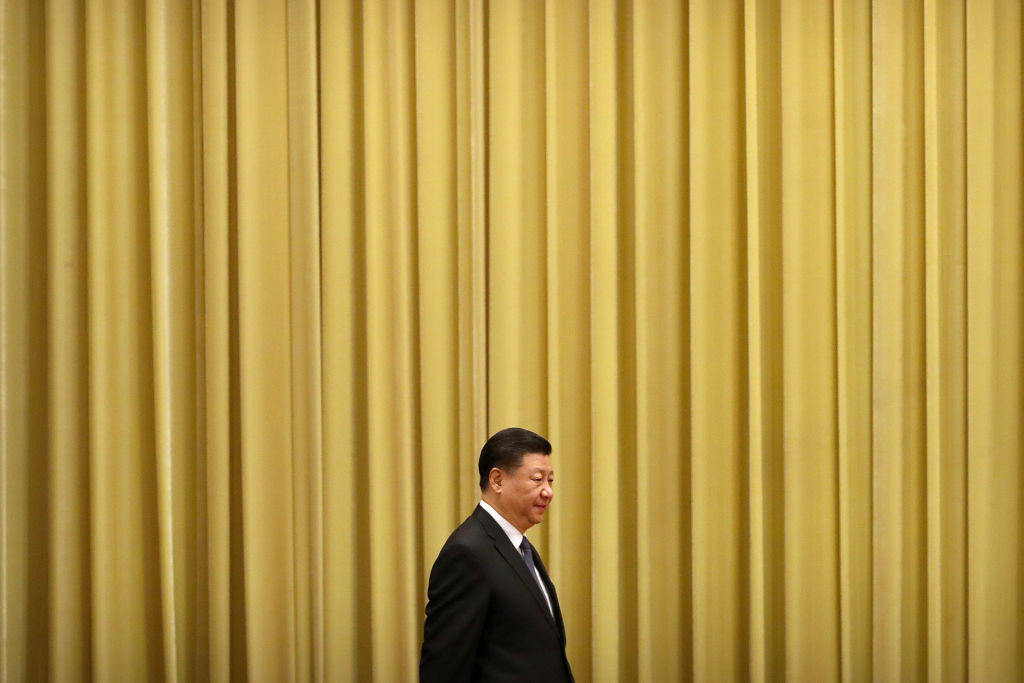China may well attack Taiwan. According to the CIA, President Xi Jinping has instructed his armed forces to be able to strike by 2027. Nothing is certain, and there are no signs of mobilisation for an imminent attack. But beyond that, Beijing’s behaviour is consistent with Xi’s orders. It builds up its assault forces. It strengthens its nuclear arsenal. It steps up its military drills. It increasingly molests Taiwan across the board. And it makes its economy more resilient to sanctions.
We can’t know Beijing’s intent for sure. We do know it covets reunification with Taiwan as the centrepiece of its declared project to restore full Chinese nationhood and create a Sino-Centric world order. A cross-Strait crisis, mixing blockade and invasion, is the main contingency for which it prepares.
The notion that if only the west shows resolve, China won’t risk its prosperity, or will postpone aggression indefinitely, is a liberal daydream
It would be imprudent to assume that this belligerence is just theatre, and dangerously wishful to trust that China can easily be deterred from striking at its most valued object. Yet this is precisely what some optimistic observers do. They claim the world’s democracies can readily deter China, by brandishing threats of economic coercion and military intervention, with Ukraine as a precedent. Even robust policies like AUKUS assume a luxurious timescale for western capabilities to strengthen.
Since attacking Taiwan would induce an economic crisis, the argument goes, Beijing will surely stand down. And allegedly, the example of Ukraine’s western-backed resistance also shows that armed adventurism will not stand.
This is all too convenient. Confidence that China won’t risk it echoes the forecasts voiced before February 2022. Recall assurances during Russia’s buildup that Putin would not invade because he shouldn’t. Only this time, the adversary is ten times larger. Its target, Taiwan, is harder to help with measures short of war, given islands can be cut off by sea and air. Now, the U.S. is already engaged in another theatre, where Washington has partially re-pivoted.
The notion that if only the west shows resolve, China won’t risk its prosperity, or will postpone aggression indefinitely, is a liberal daydream. It regards great powers not so much as countries as risk-averse economies. Historically, great powers do not exclusively focus on economic prosperity in isolation from power politics. At times they gamble, to forestall threats and strengthen their hand.
Capable states at times willingly induce crises if they sense time is against them, choosing risky escalation over a threatening status quo. Preventive fears drove the Kaiser’s Germany to gamble in 1914, Mao’s China in 1950, John F. Kennedy’s United States in 1962, and Levi Eshkol’s Israel in 1967. Necessity, actual or perceived, is a powerful logic.
Like other anxious powers, China fears the future. It assesses the risks of things not just as they are, but as they might develop. Washington recently legislated to kneecap China’s microchip imports, a blow at Beijing’s vitals. China gazes at Taiwan not as a discrete question, but as part of an intensifying contest for primacy in Asia. The hostile reaction of Asian states suggests this a case of self-encirclement. Yet the rivalry still escalates. For Beijing, reunification with Taiwan and preventing it slipping into the western orbit is a first-order issue.
Neither is Ukraine a reliable deterrent warning. Because of Ukraine, western appetite for further serious sanctions against another enemy is reduced. European powers, as France signals, are reluctant to wage economic war on Russia and China at the same time. Militarily, America’s forces are depleted and split, raising a better-now-than-later temptation. Like Russia, China may calculate it can ride out international reaction. Before invading Ukraine, Moscow amassed currency reserves, and is economically still on the board. Many markets remain open.
Since China prizes Taiwan, it will plan to succeed where Putin failed, hitting fast to seize a fait accompli, isolate the islands and place the burden of escalation on the west. Given China’s greater stakes in Taiwan, it may reckon it can force the U.S. to back off a less-than-core commitment, sure that for America even victory would taste of ashes.
China’s adversary, the United States, also fears the future and adverse trends. As China rises, Washington may continue to erode the One China Policy, the ambiguity that helped keep the peace. The scene is set for a tragic collision between rivals who both fear time is against them, both betting they can make the other back off.
An attack may fail badly. But wars happen because of miscalculations. However rational, great powers are not reasonable, especially when tides turn against them, and haste intrudes. Fearing the consequences of inaction, China may decide it ‘must’ strike, and therefore assume it can. Reckless? Perhaps, but real. Hypothetical? Yes. Just as World War One was hypothetical before 1914, when Britain’s forces were preoccupied with the North-West Frontier. China’s rulers act and speak as though they mean it. We should believe them.






Comments